The president spoke of everything: the pandemic, the crisis, tax policy, the need to apply a Marshall Plan, Cristina, the Pope, the Arroyo case, his health and being nine kilos overweight.
ALBERTO ON ALBERTO
We’re at a unique moment in the history of humanity with a single issue which has suspended time, changed the future, concentrated all our efforts solely on the present and made all past differences seem insignificant.
A year ago you were unknown to the vast majority of people unversed in polítics and and today their lives depend on their president more than ever. In that context, what is a “normal person for you,” as you continually expressed in the campaign?
In my opinion being a normal person means never forgetting who we are – our origins, commitments, obligations, loyalties, convictions and ideas. Every average human being has all these things. We all know where we came from, remember our parents and love our brothers and sisters. We all have commitments on the basis of family values, I’m referring to learned values. That is being a common man.
It’s true that sometimes ordinary people have other responsibilities. In my case I reached them through the people’s decision, by the vote. In those circumstances, one should never forget one’s common humanity and to live daily as a common man. Everything surrounding us here [at Olivos] is not mine but lent to me by the State while I’m president, to make my task more comfortable in some way. At times that makes you forget you’re a common man because you already have a great many things sorted out for you, while the immense majority of Argentines do not.
Could it be that you also want to underline your differences with the previous president, who occupied a socio-economic position outside the norms at the other extreme?
Yes, but never in that sense. If they ask me where that idea came from, it originated when Néstor Kirchner told us: “We’re ordinary people with extraordinary responsibilities.” I never wanted to forget being an ordinary man. I was Cabinet chief and never had a bodyguard, always driving my own car, coming and going that way. I separated during those years and drove my car to pick up my son, Estanislao, at his mother’s house, take him to school and from there go to work in Government House.
To a religious school.
I’m a not very practising Catholic, I’m not going to lie about that.
It pleased the Church a lot that you took your son to [that] school. The bishops commented on it.
That’s true, so I’m told.
At that moment the Church’s relationship with the Kirchner government was not the best...
The truth is that I did it for my son and not out of any religious sense. I had separated and wanted to be near my son. I was Cabinet chief, I did not have too much time to spare and I thus knew I had a short spell in which I could drive Estanislao and chat with him, so that he could tell me a bit how things were. It was an important sacrifice because it implied going out every morning at 7am to pick him up so that we could have 15 minutes before reaching school. But it was my choice and something I’d do again.
Was Raúl Alfonsín also a normal person?
Yes.
Before becoming president, Alfonsín took the bus to his home in Chascomús. So according to your criterion, being normal does not exclude an extraordinary personal capability in certain spheres, does it?
There are normal people who are huge. When I say normal, I’m not alluding to intellectual capacity or other abilities. I’m referring to having the sensitivity to know what’s happening to the average citizen.
So it’s a question of identifying yourself and having empathy with average people?
Exactly, and never forgetting who you are.
Does being president require you to transcend your ego at determined moments?
I always have the role of president. People looked at me differently than before I climbed into the presidential garb and that’s inevitable, it happens to all of us who occupy posts of this type. But when the president speaks, I seek to do so with the same honesty with which I always speak. I do not have one discourse as president and another as Alberto Fernández. I have to make both coincide because if not, I’d be betraying myself. If I had two speeches, I’d be betraying either the people or myself.
When I talk to the average citizen, I do so because I know that citizen and know that they represent the immense majority of Argentina. I speak to them effortlessly because I come from there – from a middle-class family, educated in the public system at all levels and also teaching at a public university, the average Argentine. I know how to speak to them because I’m part of them. This is not to run down anybody in any other social class. I’m simply answering your question.
You have a reputation for being cantankerous. Has your anger management improved as president?
I’m basically a quiet guy. When I lose my temper, it’s because I’ve been given motives for something to bug me. That’s what I feel.
I don’t say what suits me, I just say what comes out. Sometimes that brings me problems but I’m very genuine. You should know that every time I speak, I’m saying the truth. I don’t lie, I don’t like it, I don’t know how to lie.
They tell me that there’s a new Virgin [Mary statue] on your desk and that last month you went to the Government House chapel to pray, and then with the shantytown priests you prayed a Paternoster. Could this crisis be the opening for a certain form of religiosity?
I continue to be non-practising. Like all of us, I was raised on Judeo-Christian values. I’m Christian, I’m Catholic. I know and respect the rites of the Catholic Church but do not practise.
What’s more, I was very critical of the Church for many years, writing some very severe things against it. I was very tough on the Pope when he was [Jorge] Bergoglio. I saw a Church very aloof from the people. The Church should always have been close to those who have least, the dispossessed, the persecuted and I perceived an institution very cosy with the powerful. That was my biggest criticism, what alienated me most from clericalism.
Including Jorge Bergoglio?
Once when we were arguing, he told me: “You’re requiring me to do things I cannot do. I’m not the head of the Church, I’m just the bishop of Buenos Aires!” The years went by and he became Pope. I’ve often told the anecdote that I got to talk to him the Friday before he travelled to Rome when he ended up being consecrated as Pope. As it happened, we had overlapping appointments with the dentist. We spoke for 45 minutes. I remember I said to him: “Perhaps you’re never coming back again because you’re going to be Pope.” His reply was: “Don’t worry, I’m coming back.” But he never came back and I never spoke to him again until one day my dentist told me: “You must write to Francis, he’s always telling me that you don’t write to him any more.” I wrote to him and went to see him one day. I went to lecture in Madrid and took advantage of that to cross over to Rome.
When I saw him, I told him exactly what I’m going to tell you now: “Do you remember that I always complained about what the Church was like and you said to me you couldn’t do anything more because you weren’t the head of the Church? Now that I’ve seen you in action, I feel closer to the Church.” I told him that after three or four years in his new role. This is a Church which worries about the African refugees rejected by Europe, which blesses divorced people and homosexuals. It’s a much more open Church, much more committed to the sectors which have least. That’s why the other day I prayed with the shantytown priests – further examples of huge personalities beyond politics and without any posts.
Indeed, I pray a Paternoster when I need it. That time I was telling you about, Francis gifted me a rosary. I always tell him that I have that rosary hanging on my bedpost. Why did I do that? Because when we parted that day, he said to me: “If you want me to keep doing all these things to make the Church better, ask God to give me many years because I’m already pretty old.” Every night before sleeping I touch Christ and tell him: “Look after Francis!” I don’t know if I’ve turned more religious. What I do know is that I have a greater commitment looking at that of the Pope, who is doing great things in my view. And that is being said to you by somebody who was very critical of him when he was called Bergoglio.
Italy was the place where the most people were infected with coronavirus. Did the fact that the Vatican is in Italy lead you to have a more continuous communication with the Pope than in the past?
The truth is that the Pope has shown an incalculable generosity with me or rather with Argentina. One of the biggest damages Argentina has done the Pope has been to see who can annex his figure – to see if the Pope was Kirchnerite, Peronist or anti-Kirchnerite, whether he was with the farmers or with the government. The truth is that the Pope is an immensely ecumenical figure, way above all of us. He’s also Argentine. And all the times that I’ve asked him to help me, he has - not helping Alberto Fernández but Argentina.
Did the Pope influence your decision to decree total quarantine so early?
That’s where my agnostic side came in.
And what might that agnostic side be?
Consulting the scientists.
Like Galileo Galilei and the Jesuit Cardinal Roberto Belarmino.
There, what the scientists say weighs more heavily with me. I cannot allow myself to be carried away by faith in that case.
Would that be the same with abortion, for example: subscribing to what the scientists say?
Yes, there my stance was defined a long time ago.
So you would also be a believer in epistemology...
Call it what you like. A Catholic can also understand the phenomenon of abortion differently to the Church. Besides, the Church used to have a different position. When you read Saint Augustine or Saint Thomas Aquinas, you will find paragraphs dedicated to permitting abortion. Afterwards Church logic changed.
And might change again in future ...
I don’t know but perhaps. If the Church changes for the better, as it has, for example, with Francis, it would be welcome.
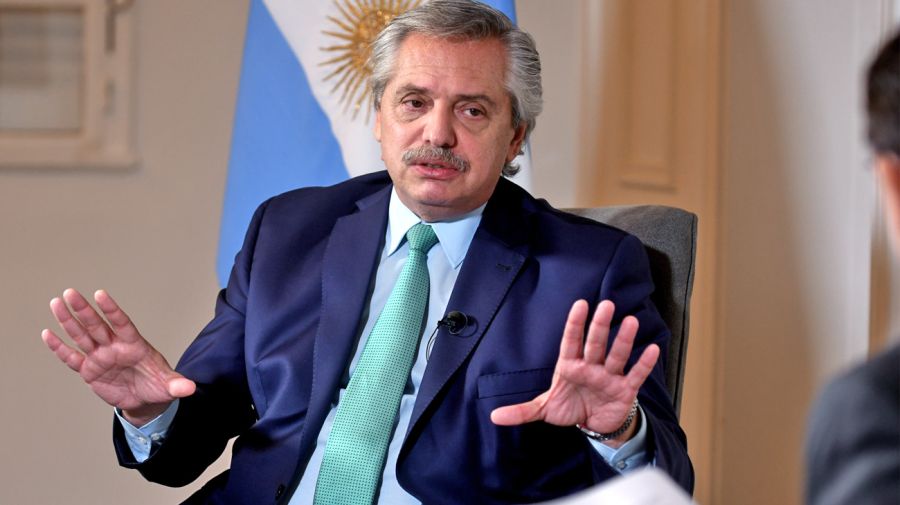
ALBERTO ON GOVERNMENT
You were Néstor Kirchner’s Cabinet chief in 2003 at the young age of 44, but you already had 20 years experience of public administration in important positions under your belt. Kirchner also had Roberto Lavagna as his Economy minister, who was over 60 and vastly experienced. You chose persons aged under 40 with no experience in public administration for these positions [in your Cabinet]. Why?
I never made the comparison with Néstor or his decisions. I resolved it because I believed it to be best.
There is a major portion of society which scorns public office. I find myself at the opposite end of that outlook – I uphold it. There are an infinite number of valuable people in public office, also some corrupt specimens but they are not the majority. Most people working in public office are dedicated with a vocation of service. There are some idle bums just there for the pay cheque at the end of the month, the so-called ñoquis, but they are not the majority. Public office is doing what anybody dedicated to politics wants to do: namely public administration - that’s what politics is all about. So having experience in how the State functions is very important - it’s an enormous advantage.
Martín [Guzmán] was indeed an academic. I’ve known him for some time because when he came to Buenos Aires, every three months, he always talked to some of us to supply an economic take on Argentine reality. He always impressed me. Lavagna defined him very well. One day, when he was already minister, I called Roberto and told him: “Do me a favour, I want you to talk to Guzmán and tell me how he strikes you.” Lavagna is very precise when he talks, always finds the exact words. His definition was: “He has the necessary dose of heterodoxy and the indispensable dose of orthodoxy.” He’s somebody who doesn’t stick to any dogma. I need him to resolve the economy in times in which all economic dogma and logic have exploded into a thousand pieces. I couldn’t have a better minister than Martín, I’m sure of that.
I’ve known Santiago for a longer time with a shared [political] militancy. He is a person born and bred into politics. I always say that the Cafiero family in Argentina is like the Kennedys with the Americans.
Both his grandfather and father were politicians.
Exactly. Santiago was in public office in Buenos Aires Province so he knows how the State functions. And the best thing about him is that we are conceptually in tune as to the horizons we wish to reach. Those are the things I thought of, not so much the experience.
Furthermore, although it might seem a dreadful thing to say, I’m very sure of myself. If somebody with State experience is needed, here I am. Help me to fix the rest, I’m there to provide the experience.
So are you also your own Cabinet chief?
No.
Really?
I’m the president and the president oversees everything. Néstor had a Cabinet chief but was into every ministry. It wasn’t that everything rested on me. We were both notified as to the policies of all the Cabinet, just like Santiago and I today.
What is the significance of the recurrent presence of [Strategic Affairs Secretary] Gustavo Beliz in recent video-conferences with the governors?
Gustavo is a person of enormous value in different aspects. I’ve known him for many years. I’ll never forget the day I asked him for his resignation [as Justice minister in 2004], I called him and told him: “This is my saddest moment in this job.” With great nobility he resigned and left. Many years went by without my seeing him because he ended up living in the United States, working for the Inter-American Development Bank (BID), far from Argentina. In that period I ran across him a couple of times. When my candidacy became public, we met again. What I felt was that that morally impeccable Gustavo, enormously dedicated to public office, had grown in the sense of an impressively wiser head after 14 years of living outside the country and globetrotting. That is also a great advantage although some do not value it – you become much wiser taking your distance and getting to know other latitudes. Gustavo is a person whom I consult again and again.
Might Gustavo’s experience make him work as almost a second Cabinet chief?
I don’t feel it that way because Gustavo is a great “resolver” of problems. I don’t know if I said that right but he’s a guy who solves problems. He sees a problem and dives straight in.
Let’s imagine the following hypothetical scenario. You’re Cabinet chief and Néstor Kirchner is president in a situation like now with the coronavirus and there is a need to buy food. Could it have happened that a government, with you as Cabinet chief, could have bought food at a higher price than the maximum prices imposed by your own government?
I don’t know. The Cabinet chief would not have intervened in that purchase. [Social Development Minister] Daniel Arroyo is a man of great honesty. Sincerely, I don’t know because nobody is exempt from some scoundrel doing what they shouldn’t. I want to be frank, I don’t know if there was any wrongdoing. What I do have clear is that there was an abusive situation but I do not know if the suppliers corrupted anybody. That’s something the courts will have to sort out.
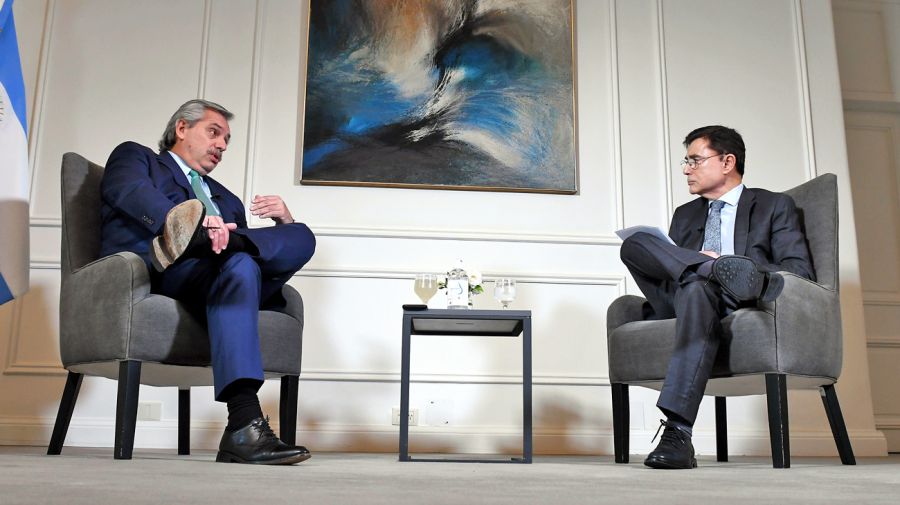
ALBERTO ON CORONAVIRUS
Is it true that on the Sunday when total quarantine was decided, you were not in agreement and that it was the scientists who convinced you?
No, on the contrary. My doubt was over stopping classes. The initial reaction of the scientists was that this was not necessary because the virus was not lethal for children, who recovered quickly, so initially they gave classes the go-ahead but afterwards warned that while the children did not die, they were carriers of the infection to their homes.
To their grandparents, for example.
There everything changed. On this point I pay a lot of attention to what the scientists, experts in infectious diseases and epidemiologists say because we are like blind people groping around with a stick. It’s a virus nobody knows. Last week the Malbrán Institute discovered that until now there are at least three different strains of coronavirus in Argentina – one coming from the United States, another from Europe and the third from Asia. I remember that when we discussed this in January with [Health Minister] Ginés González García, he told me that “according to the report of the World Health Organisation (WHO), the virus dies at 24 degrees Centigrade so that we’ll get the problem in winter.” Our protocols were made with that criterion. We sent them to the Antarctic to tell them beware with the cold and everything else. But we never thought that the virus could survive with other temperatures. The first cases occurred with an average weekly temperature of 31 degrees in Argentina. Now we know that the virus lives in that context.
Ecuador is the best example.
Ecuador and Brazil. We see that it is a virus which goes mutating and adapting to the situation in every place it finds itself. It won’t take long for a Latin American strain to appear. That’s why I listen a lot to the specialists, they are so much better informed than I am with a logic I don’t possess.
Did the possibility of coming out of coronavirus with 10 percent more of the population below the poverty line make you hesitate at any point?
No, I didn’t hesitate, never, never. I prefer to have 10 percent more people sinking into poverty than 100,000 deaths in Argentina. You cannot return from death but you can bounce back from economic problems. I always give the same example. The year before we took office with Néstor in 2003, the economy had fallen 11 points [11 percent of Gross Domestic Product] with 57 percent of the population below the poverty line and 25 percent unemployed and we came back. All that can be recovered but not a life.
I did not hesitate because it is also a false dilemma. If we allow workers to go to their car plant as if nothing was happening and one of them is infected, he could infect the entire factory in a single day. The question then arises of what happens to that plant with all its workers infected, sick or dead. Those raising the dilemma between economy and health are thus saying something false. We have to save the economy, preserving the small and medium-sized companies and the big ones too ... but don’t ask me to pretend nothing is happening because something very serious is happening here and I cannot ignore it.
Do you fear that the approval of your handling of the pandemic, when the sanitary situation comes under control but the pains of the economic crisis start to be felt, could backfire?
No. If that’s what I have to face, I will. It’s the consequence I’m expecting. It won’t be anything new. I’m not expecting to do all this and see the economy grow. I know that in doing all this, the economy stagnates. But I’m avoiding that the stagnation leads to anybody going bankrupt, that this crisis devours the middle class while enabling the poorest classes to hang on. I’m looking after all that. But to think that I can fight coronavirus with a quarantine lasting at least a month and a half without economic consequences, that’s impossible.
There will be consequences but first you must understand a series of data. Ginés told me that last year 31,500 people in Argentina died from common flu. The problem is that we are counting each death from coronavirus one by one, feeling it as a highly traumatic fact. And that’s reasonable. The question which must be asked is for how long will we be co-existing with coronavirus. Because it’s not as if we emerge from 45 days of quarantine and it’s all over. It has been calculated that we will have the vaccine in between 18 months and two years. In the meantime we are looking for some remedy to ease the pain and distress caused by the virus. That would change everything. I don’t know when we will be able to shake hands again and Argentines hug each other.
Not just Argentines but the whole world. The other day I saw how they are re-opening in Wuhan, the Chinese city where it all began. Seeing it is like a futuristic film, everybody going around dressed like astronauts. The world is going to be different with the economy in tatters for everybody. But it is also a great opportunity to make a fairer and more legitimate world.
On Good Friday we spoke with the Grupo de Puebla, including Alicia Bárcena, the director of CEPAL [Economic Commission for Latin America and the Caribbean]. There she made that point: we have the opportunity to create an economy with more solidarity, because at the end of the day what is the use of speculative fortunes and booming stock exchanges if a virus wipes out the consumers in a minute and everything is worthless. Something we have to think about because it demonstrates the weakness of the system. Then along comes Donald Trump with US$200 billion [sic - actually US$2 trillion] but the damage is already done.
Two months ago nobody would have doubted Trump’s enormous possibilities of re-election but now the forecasts say the contrary. History teaches us that extremely powerful presidents and countries like the United States often embark on some kind of pre-electoral military action in order to improve their chances. Are you analysing with your team the alternative of a US invasion of Venezuela?
It’s being talked about. I would like to think it isn’t true. In this context of global pandemic with an unknown disease for which nobody has the protocol nor the cure, what I would most wish is that Trump halts the blockades.
That’s what you requested with the G20.
With the G20 and I repeated the proposal with the Grupo de Puebla. [Ex-Brazil president Luiz Inácio] Lula [da Silva] was also very emphatic on that point.
We have to understand that the Venezuelan problem really exists and that we must help the Venezuelans to find a way out, which would be sitting down to dialogue, voting and electing a new president. I don’t know, it’s something the Venezuelans have to resolve. We have to help create a framework in which they can sit down and trust each other again. What cannot be permitted is a military invasion.
An interesting point about Trump - why did Trump’s image fall? Basically because he initially thought coronavirus was risk-free. Coronavirus was a problem. Later he realised that the US health system is totally privatised and that most people don’t access it, as they are also demanding.
A continuous demand of the opposition ...
The first thing Trump did on reaching power was scrap his predecessor’s ‘Obamacare,’ extending social health insurance to a greater number of Americans, even if not all. What the Trump crisis is also demonstrating is that the world will have to rethink the role of the State in the future. It is clear that the State has missions which cannot be delegated and thinking that the market can resolve them won’t work.
The State will be valued more.
Education, health and justice are State services which cannot be delegated or entrusted to the market.
Let’s enter into your health a bit. Have you been vaccinated against the flu or pneumonía?
My idea was to vaccinate myself against the flu, which would be the first time in my life.
And pneumonía?
My aides tell me yes I should.
Have you put on much weight?
Around six kilos since becoming president.
And in the campaign?
In the campaign I must have put on three kilos so I’m eight or nine kilos overweight.
Have you been sleeping the same since the coronavirus crisis broke out?
I feel I’m getting the necessary rest. I’m somebody who falls asleep at 1.30am and is already awake at 7.30 am.
The same as ever.
Perhaps I used to sleep earlier beforehand, closer to midnight.
Do you have an adrenalin which makes you need a bit less sleep?
I go to bed at midnight but then I wake up and look at my Twitter, chatting to somebody and joshing a bit, sending greetings, until sleep overcomes me.
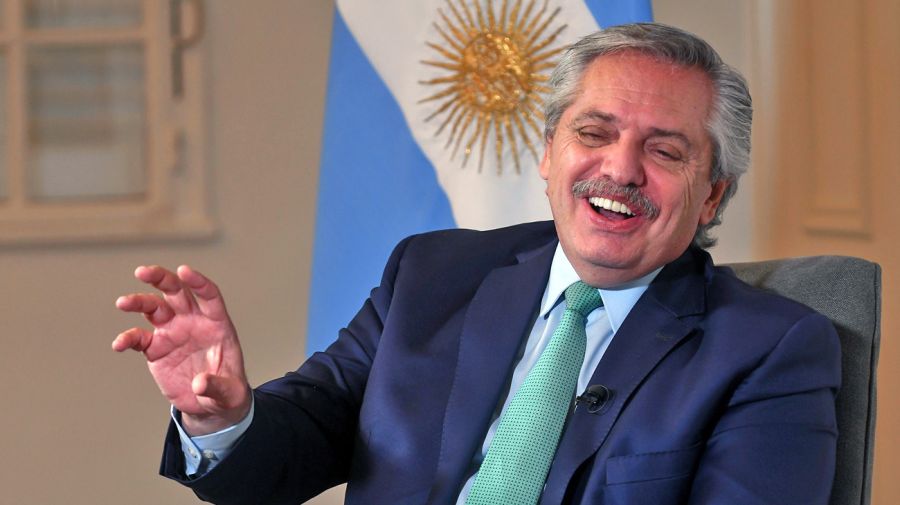
ALBERTO ON THE PAST
Under Raúl Alfonsín you were director and director-general of legal departments of the Economy Ministry. In the first term of Carlos Menem, National Insurance superintendent. Under Buenos Aires Province Governor Eduardo Duhalde, vice-president of Bapro provincial bank. Cabinet chief with Néstor Kirchner and in the first year of Cristina Kirchner. You were only never a public official in the Fernando de la Rúa and Mauricio Macri presidencies. Is it an advantage being president with a previous career of public service, in the French style?
I think so. Furthermore, I’ve been into politics since I was 14. At that age I began my militancy at the secondary school students union (UES, in its Spanish acronym) at my college the Mariano Moreno, which at that time competed with the Colegio Nacional de Buenos Aires to be the most politicised. We did not pursue any political activity during the time it was banned but as from the year 1981 I re-entered politics at university with full-time dedication once I graduated. If I ever asked myself what is politics, I would leave aside any academic definition or one of the many oft-repeated theories going the rounds such as achieving a consensus of wills or the art of the possible. I would say that politics is the administration of reality, simply that.
You discover how a person thinks in function of how they administer reality. A conservative seeks to maintain reality, a reformist to change it within established rules and a revolutionary to throw those rules out of the window and invent another reality. But everybody operates on the basis of reality, absolutely everybody. Politics prepares you for that. And there is no place where you can change reality other than the State. That’s where you can serve and be useful as long as you have a minimal ideological base. I could work with Néstor, with Alfonsín and even with Menem, although in the time I worked with Menem I was highly critical. There are articles of mine from back then in which I manifested my critique of economic liberalism.
My question to you was going to be if you believe that the failure of the previous government was due to its leader’s lack of national state experience, if that would be a necessary although not sufficient requisite.
I could not have participated in either of the two governments you mentioned because they scorned the State and public affairs, while conceptually I belong elsewhere.
Does that also apply to De la Rúa?
Yes, definitely.
Beyond any dispute De la Rúa was a man with State experience. The difference in that case would be ideological.
De la Rúa is no longer around so it’s a bit nasty to talk about him. De la Rúa was very well prepared academically but politically overrated. In terms of handling the State, he was very underprepared.
His career was more legislative than executive.
Macri came from a completely unrelated starting-point but in addition he showed an evident scorn for public affairs and the State from his very first day.
You spoke of three approaches to the State: to conserve, transform or revolutionise. With which do you identify?
I’m a reformist, beyond any doubt.
Your grandfather was a Radical provincial senator in La Rioja.
I never knew him. In reality he was the father of my mum’s second husband, who was the one who really brought me up. His son, my father, was very, very close to Peronism. He was not a Peronist of declared militancy because he was a judge, but he was someone who eyed Peronism sympathetically.
As you eyed Raúl Alfonsín with much sympathy.
Yes.
Do you identify with the Radical party and its traditions?
I’m a Peronist. With many things, no. But Alfonsín was a great man. The problem is how we typify each one of these parties.
How would you typify them?
My hunch is that you believe the Radicals to have more respect for the institutions than the Peronists...
That is the general Vulgate.
…and that the Peronists are more executive than the Radicals.
Exactly.
I’m a Peronist who’s very respectful of the institutions, very democratic and very republican.
The Peronism you imagine is at the same time reformist and institutional ....
… and very republican, very respectful of individual rights. There is a certain non-Peronist viewpoint which says that we get things done while sweeping all before us with a message saying: “You don’t respect the rights of others.” I don’t feel that because when I look back at history, Peronism was always the victim of persecutions.
Could there also be a process of evolution because Radicalism was not institutional in its beginnings either.
If we talk of my circumstances and of how I became a Peronist, the truth is I don’t know very well what formed my ideology, I feel myself to be the result of a whole bunch of things.
Your father may have played a role there?
I think that my generation played that role.
Because you were also a judge ...
I was never a judge.
… and lawyer.
Lawyer, but not a judge.
You were a judge in San Isidro.
I was an associate federal judge. But speaking of ideology, when I speak as I do, am I the result of having read [Juan Perón’s] “The 20 Peronist truths” and La comunidad organizada? The answer is no. I speak as I do because of the weight of many factors. This is going to sound strange but the hippie culture was a big influence.
Your music ...
Not just the music. Also the hippie stance in the face of consumer society, in the face of the rules instituted by one dominant society over another.
The Woodstock culture? What brought down the Soviet Union, the rebellion of the youngest, as recognised by the Soviet apparatchiks themselves.
Exactly. A cultural world also linked to France’s May of 1968 in my case. So what weighs most with me? I would list Juan Perón, France’s May and Woodstock but how much Walt Whitman and how much Charles Baudelaire? I believe I’m a combo of all those influences. In that context I would say that Raúl Alfonsín weighed considerably. Before he died, when I was Cabinet chief, Alfonsín invited me every now and then to eat at his house, he served up fried pejerrey fish with mashed potatoes.
From the lagoon of Chascomús...
So it was said, I never checked it out! But let’s say it was from the lagoon of Chascomús. But besides it was delicious. Alfonsín was a great guy. He was a democrat. He stood up to the powers that be and disavowed them. I’m sure that if Alfonsín lived today, he would complain about the economic elite which says: “Forget about coronavirus, let those who are about to die die and let the economy run.” Of course Raúl Alfonsín left his mark on me.
He was also the first president of democracy when you were starting your adult and professional life.
One of the last times I saw Alfonsín we talked a lot. I told him that I did not have the slightest idea why I never voted for him. On the day he died I wrote an article for Clarín where I said: “I have no idea why I did not vote for him.” Looking back at the year 1983 I voted for Italo Luder out of party loyalty, as they say. But how could I have voted for someone who spoke for the military self-amnesty and said that the past could not be reviewed? I look back and say that it was insane to have done that. And why didn’t I trust Alfonsín? Because we came from a generation which chanted: “Call in that gorila Alfonsín so that he can see that this people does not change its ideas.”
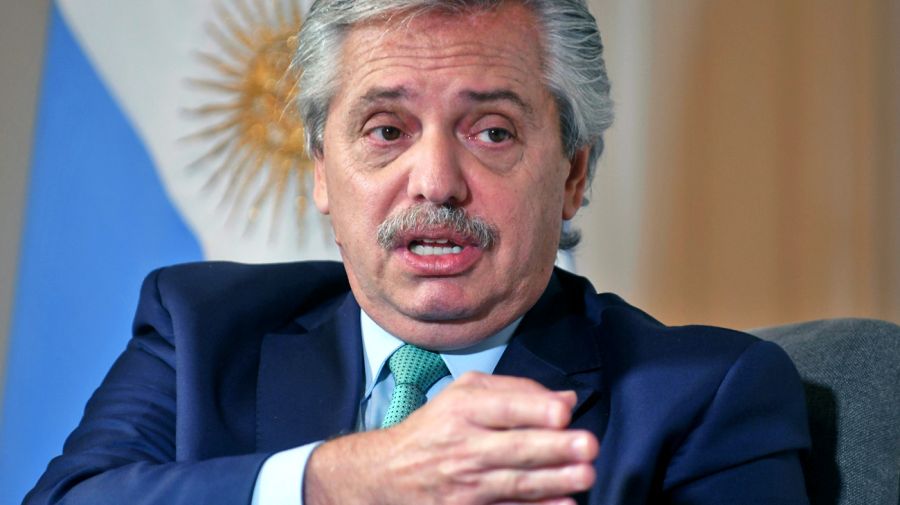
ALBERTO ON WHAT HAPPENS NEXT
Will the coronavirus crisis come to demand a heterodox plan against inflation, abandoning a certain degree of gradualism?
There is every reason to suppose that inflation ought not to be the problem in the times to come. If the World Trade Organisation (WTO) says that commerce could fall by up to 38 percent, the truth is that all consumption will fall. If that is so, inflation might come to a halt or fall off with more reasons to expect deflation than inflation.
Now, if after coronavirus a turnaround is needed, that’s another story. What Argentina will need will be something more like a Marshall Plan than a plan to contain inflation. We’re going to have to do what I said in the campaign: switch on the economy because I’m aware that now it’s turned off and in the worst way – we sent consumers home. We’re going to need to put the economy back to work and there the role of the State will be very important.
The International Monetary Fund used to think that to stop inflation, you stop printing money. Might the belief that recession halts inflation undergo the same fate as the idea of not printing money? Roberto Lavagna has insisted on the opposite. He says that in an economy full of PYMES [small and medium-sized companies] the small producer, when faced with a recession lowering the quantity of units sold, has to divide his fixed costs among less units, thus increasing inflation more. Could that Marshall Plan attack inflationary momentum?
It must be attacked. Current inflation is what some economists call “self-fulfilling inflation” based on expectations and the worst expectations – those of speculation. It implies saying: “Let’s seize the moment now because I don’t know what’s going to happen tomorrow.” We sell alcohol-based hand gel at astronomical prices because it is needed so much, multiplying the price twice or thrice. There the State must dig in and stand firm. This is not an inflation with any economic logic, it is absolutely speculative.
Would a socio-economic council capable of making a pact among sectors with interests in conflict be more necessary in the post-coronavirus economy?
We were talking about that issue with [Chaco Governor] Jorge Capitanich, [ex-president] Eduardo Duhalde and [Vice-President] Cristina Kirchner as well. If coronavirus is to leave any good behind it, it will be the opportunity to formulate another society.
Coronavirus shows up our inequality. You look at what’s happening in the City of Buenos Aires, cross the General Paz (Avenue) and find two Argentinas. The further you go from the City of Buenos Aires, the deeper the difference. We have to build a more egalitarian country, definitely based on another logic. This is the opportunity we have because we are all going to start from an equal footing right at the bottom. This would be the opportunity to build a different country with a different structural logic.
I say that there must be a new federal pact on how to develop Argentina, beginning to see the major issues which worry us and assuming that Argentina has no future if we do not develop education, science and technology. The richest societies are also the richest in the development of science and technology. Therein lies our wealth because we have the raw material in the form of the human capital to prepare for that. I corroborated that the other day when visiting the Malbrán Institute. The socio-economic Council seems to me a great place to debate all that and make the agreements to rebuild Argentina.
If you ask me what would be my biggest wish, it would be to leave Argentina on a different path to the one it was on, placing it on a path of growth with equality, also including regional equality. Argentina is very unequal, regionally speaking – the north is abandoned.
Lavagna maintained that the growth taking off between 2002 and 2003 stemmed from the enormous shock of seeing people looking for food even in the rubbish, generating a suspension of conflicts and acting as the midwife of growth. Are you optimistic as to national unity being among the secondary effects of coronavirus?
Yes. Because one of the things I also see is the immense solidarity which exists. I had a dispute with a company which was throwing out people and many newspapers headlined: “Alberto Fernández against businessmen.” Me against businessmen? I’ve stopped counting the businessmen who are paying out money to save their communities. The other day I was with [Lanús Mayor] Néstor Grindetti and he told me that a businessman called saying: “I see you working with the national government, I don’t share your ideology but I want to help you set up 150 beds to attend [patients] in Lanús.” The other day, businessmen from General Rodríguez came to see me about building a hospital in 15 days for that municipality.
This horror has united us and made us realise how little we are worth – everything is worth nothing. Nobody living in a society can save themselves alone.
When you met with media directors, you mentioned one positive aspect within all the misfortunes was that lower interest rates could result in a better renegotiation of the debt. How’s that negotiation going and how does coronavirus affect it?
Coronavirus affects the renegotiation of the debt as it affects the entire global economy. The negotiation is going well and we’ll soon be making our offer. I don’t like lying and I don’t like lying to creditors either. We’re going to sign something we can honour as a government and as a country. I don’t want to commit myself to signing something I cannot honour.
But that would be after your term.
Exactly. We’re going to make an offer which can be sustained in time, an offer we know we’ll be able to honour, knowing how Argentina’s situation will be after coronavirus.
Will it be harder on the creditors?
It will be as hard as it needs to be in order to be able to pay it.
In order to be sustainable....
What we’re not going to restructure is the debt in pesos, we’re going to honour that debt because it is to people who trusted in the Argentine currency.
Will this sustainability now require a bigger haircut than when there was no coronavirus?
Yes, we might say so. That strain can be expressed in different ways, in haircuts or deadlines.
Even if it’s a 20th century label, might you be said to be a social democrat?
Yes. The Peronists are going to hate me for saying this. At this stage of events Peronism should review its self-image because it is a profoundly democratic party, never reaching power other than by the vote of the people. Furthermore, its social concept is the epicentre of everything – social equality and development, what Perón called “upward social mobility” like in that play M’hijo el doctor. Peronism could easily describe itself as social democracy.
Even if it might annoy some in your party, there might be a need to think like that post-war social democracy which proposed: “All the market possible, all the State necessary.” Is that what Peronism should be incorporating conceptually?
With Communism dead, capitalism is beyond discussion. What we are discussing is how capitalism should be, now that what I call “speculative and financial capitalism” has come to an end. It no longer exists, having shown how ephemeral it is and how easily it can end for the appearance of a microscopic virus which kills consumers.
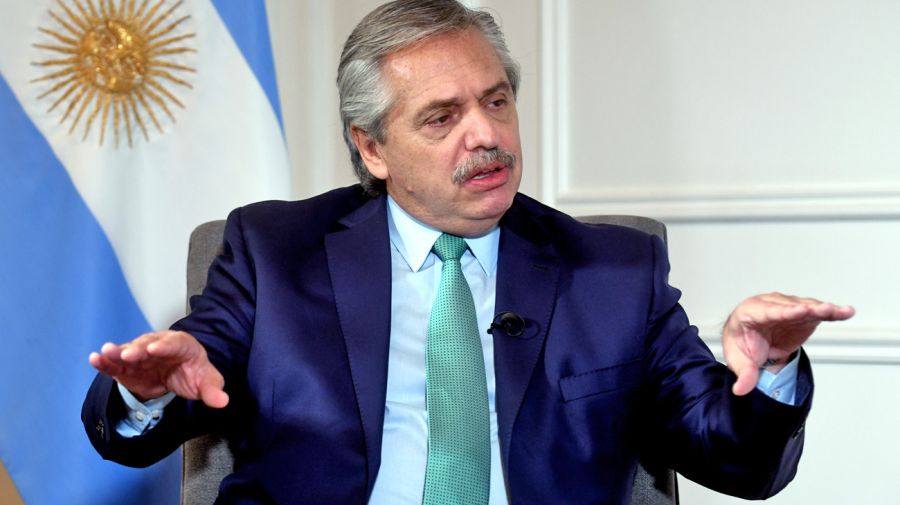
ALBERTO ON LA GRIETA
You campaigned as the anti-grieta man. Will coronavirus also give you the opportunity to consummate that idea?
I want to be frank. My anti-grieta discourse is not opportunistic campaign rhetoric, it’s what I sincerely believe. We have to ask ourselves whether it made sense for us to be in a crossfire for so much time, only for both sides to find ourselves today facing the same risk and the same problem. Did it make sense?
No.
Then let’s stop now. We realise that we have a common risk. Let’s make the epic construction of something valuable for everybody and the most valuable thing we can do is to save our people’s lives.
In a self-critical sense, could Kirchnerismo have constructed such a strong identity if it had not had a confrontational style? For the politics of the future with a general socio-economic mega-agreement, could it be agreed not to make use of confrontation and antagonism, even if electorally beneficial?
This question leads me to make some more profound reflections. We have to construct a more rational and less emotional politics with more rational and less personalised or caudillo-style leaderships. If Argentine democracy stumbles two times out of every three, it is due to personality politics. I have no interest in any “Albertismo” but I will do everything possible towards a strong, democratic and consolidated Peronism which competes in and wins elections. I have no interest in a personalised leadership and on that basis you can start to construct and conceive politics differently.
When many people say: “But in Cristina’s time, fundamentally, Kirchnerismo confronted a lot and built an identity out of that confrontation,” that also stirs me to ask: “Was it not the others who obliged them to construct that identity because the attack on Cristina was so furibund?” That apart from some things which I once criticised and continue to believe to be errors. It takes two to tango.
How do you head an alliance with such enormously important political heavyweights as Vice-President Cristina Kirchner and Lower House Speaker Sergio Massa?
Not hard at all. For many reasons. Firstly, I dialogue with everybody. The most important dialogue is with Cristina and it’s a good dialogue. After much distance we’ve managed to draw closer and do things together, work together. I listen to her a lot, I’m not embarrassed to say. She governed for eight years, an experience I don’t have. I listen but we don’t necessarily always agree.
And Sergio Massa?
The same. Sergio’s generation is closer and our connection more daily.
You were both Cabinet chiefs.
Exactly, he came after me. We were politically together for a long time. The same goes for Máximo Kirchner and the kids of La Cámpora, so demonised. For a start they’re no longer kids, they’re grown-ups.
Is the conceptual difference with Cristina that you’re pragmatic and she’s dogmatic?
In some things, perhaps yes, but nor is that so true.
She’s not as dogmatic as she seems.
She’s a woman of great experience and great intelligence.
Is dogmatism proof of a lack of intelligence?
I think so. Dogmatism functions as if it were revealed truth.
Crystallisation prevents growth.
Nobody decides to revise their ideas and every idea must be reviewed.
What differences do you have with the ex-president?
Sometimes I have a flexibility which she finds hard. It’s a difference of forms, not content. In content we think very alike.
Some analysts say that the death of Néstor Kirchner took away an important part of her personality and that you came along as a substitute. Is that interpretation possibly true?
No, it was always a mistaken interpretation. I’m not referring to your question especially. I don’t want what I’m going to say to upset you.
Please, go ahead.
It always seemed to me, even when I was very critical of Cristina, that there was a need to look for the man behind her. When Néstor died, they said it was Máximo. When they realised it was not so, they said Carlos Zannini. When I appeared afterwards, they said: “Alberto.” No, Cristina is Cristina and she really functions without any man to sustain her, push her or invite her to go one way or another. In those years, when many colleagues were asking me who was behind Cristina, my reply was: “Nobody.” Behind all that perspective is a certain machismo.
You think that there is a gender question here hard to digest ..
That’s Cristina. Take her or leave her but that’s Cristina.
What decisions do you think Néstor Kirchner would have made? Or Cristina with nobody at her side to ask?
I’m sure that Néstor would be very happy with everything we’re doing and also with this logic. My logic of dialogue was not different.
You’re not more prone to dialogue than he was?
I’d say not.
Could you then say that you had differences of form?
He was as much ready to dialogue as I was. Like Máximo, I feel very comfortable working with Máximo. I always say, how lucky he inherited his father’s genes. He is very into dialogue. Some people in Argentina think that he is surly and does not talk to anybody but in no way is that so.
As a republican you surely consider that alternation in power is intrinsic to the democratic system. What kind of opposition would you like to see grow in Argentina?
A sensible one, quite simply. What most affects me is insanity. I work and dialogue with many opposition politicians although I know I’m going to confront them at some point. That’s democracy.
Could Kirchnerismo somehow be held responsible for having chosen Mauricio Macri as its antagonist?
In the society of 2015, there was fatigue with a certain system.
But that had been coming since 2005.
The truth is we did not choose Macri as our antagonist and nor was he in 2005 or in 2007. He erupted into the City of Buenos Aires at a chaotic time after the Cromañón [nightclub] tragedy when all the institutions were cracking at the seams, and indeed he did much to reinforce that trend. He appeared in the City as an option to Cristina at a time of social fatigue with certain governments.
In economic terms we face a billion and a half people, or a quarter of the global workforce, remaining jobless or with reduced income. How do you imagine the future of labour?
We’re experiencing a phenomenon which has been a long time coming. The other day, talking with Duhalde, I told him that the future of labour should be the first issue on the socio-economic council’s agenda. The reality is that technology is leaving countless people jobless and with nowhere else to go. A small example, when I was working in the Economy Ministry, there was a man passing by offering us coffee, snacks, etc., with waiters on every floor but now everybody has their own coffee machine. The waiters disappeared but where did they go? Because they are uneducated, untrained people in an increasingly demanding world. We have to review that issue but the phenomenon already existed.
The pandemic is exposing us to new things. I don’t know, for example, how e-commerce is going to work in the future because perhaps that’s the road. And what we’re going to do with those giant logistical firms which distribute packages. People will lead a more sedentary life at home. I also don’t know if e-learning will finally prevail but I can say that it is now being tried. I also realise that certain jobs can be done from the house because telecommuting works and is already being applied in areas of public administration, like AFIP tax bureau, for example. You need to ask what the pay differentials should be between telecommuters and those who go to work because the former have less transport expenses and do not need to eat out. Such issues will surely change, part of the challenges ahead.
But like Britain’s Labour Party, Peronism was grounded in the trade unions and labour issues.
We’ll be the party of the workers and teleworkers!
Since you’re a lawyer, the pandemic presents a legal case – there will be a worldwide breach of contract with probably the whole planet experiencing something equivalent to Argentina in 2002. For example, a business which has shut down is not going to be able to pay its rent. Do you think there’ll be a growth in crisis law?
Everything which happens will have to be resolved. But the law contains provisions for force majeure. An epidemic is such a case so that all those contracts would need to be reviewed in the light of force majeure. The law has a solution for all that.
So it’s the economy which will have to be creative, not the law?
Of course.
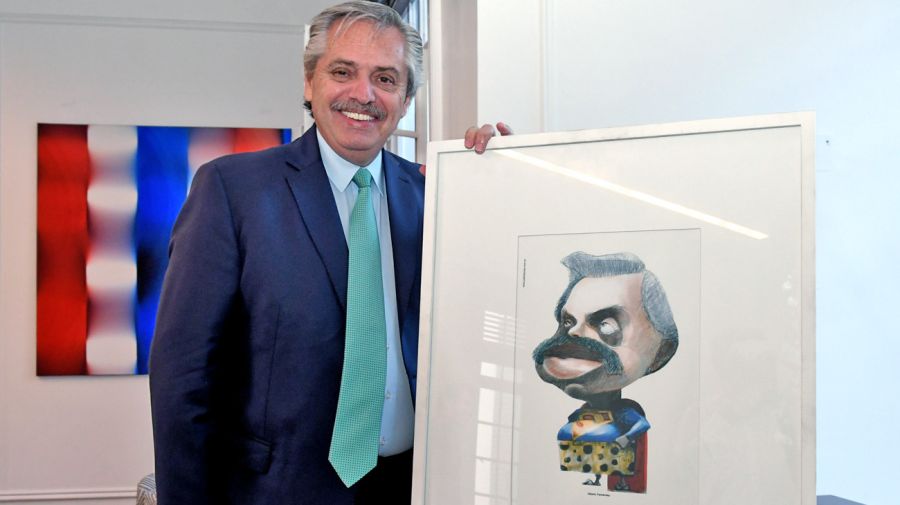











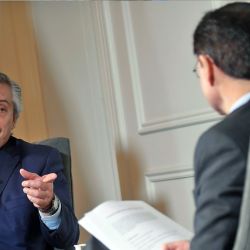
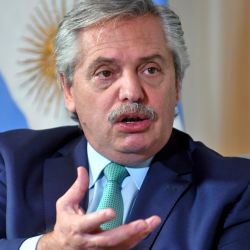
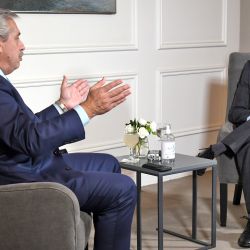


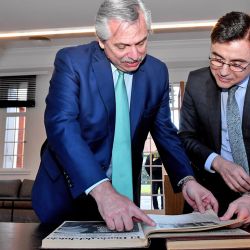


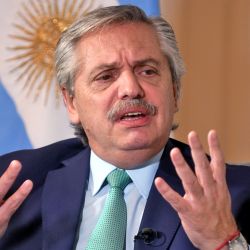


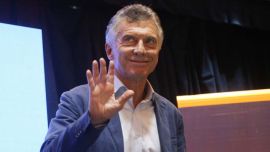

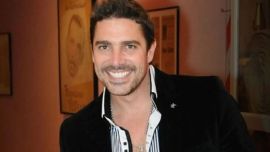









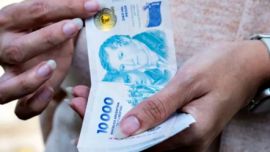

Comments